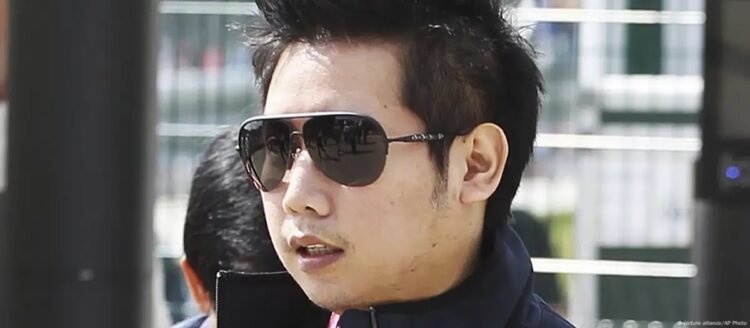BANGKOK — In a long-awaited ruling, a Thai court on Tuesday convicted two former prosecutors for their roles in an alleged cover-up that helped Vorayuth “Boss” Yoovidhya—heir to the Red Bull fortune—evade prosecution for a fatal hit-and-run incident in 2012.
The Central Criminal Court for Corruption and Misconduct Cases found former Deputy Attorney General Nate Naksuk and former prosecutor Chainarong Sangthongaram guilty of abusing their power to shield Yoovidhya from legal consequences. Naksuk received a three-year sentence, while Sangthongaram was handed a two-year term.
The two were part of a group of eight individuals charged with manipulating the official record of the Ferrari’s speed at the time of the crash, allegedly to disqualify a speeding charge. However, the remaining six—including former National Police Chief Gen. Somyot Poompanmoung—were acquitted due to insufficient evidence.
Despite their acquittals, the court ordered all eight defendants into detention pending appeal. Local media later reported that all were released on bail.
The case dates back to a September 2012 crash in central Bangkok, where police say Yoovidhya’s Ferrari rear-ended a police motorcycle, killing the officer instantly. Blood tests later revealed alcohol and cocaine in Yoovidhya’s system. Despite being briefly detained, Yoovidhya managed to avoid prosecution through a series of delays, no-shows, and procedural slowdowns. He ultimately fled the country in 2017—just before an arrest warrant was finally issued.
Now living abroad, Yoovidhya remains a symbol of Thailand’s long-standing struggles with elite impunity. His family’s immense wealth—valued by Forbes at $36 billion—has only amplified public outrage over the years as the case continued to stall.
Only one charge remains active against Yoovidhya: reckless driving causing death. But time is running out, as that charge is set to expire in 2027 under the statute of limitations.
The conviction of Naksuk and Sangthongaram marks a rare instance of legal accountability in a case many viewed as emblematic of how Thailand’s wealthy often avoid justice. Whether this ruling will reignite efforts to bring Yoovidhya back to face trial remains to be seen.

 English
English



























































